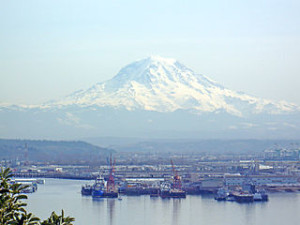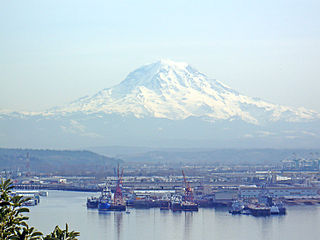 U.S. West Coast port congestion issues could cost retailers as much as US$7 billion this year, according to a new analysis by a global management consultancy.
U.S. West Coast port congestion issues could cost retailers as much as US$7 billion this year, according to a new analysis by a global management consultancy.
Kurt Salmon estimates that imports and shipping delays could cost retailers up to $3.8 billion this year. When coupled with the costs of rerouting products from West Coast ports, increased cost of carry, and missed sales opportunities due to out-of-stocks, retailer cost could increase to $7 billion this year.
“Further combined with likely rate increases due to import growth and congestion across the nation’s ports, 2016 costs could climb to as high as $36.9 billion over last year’s baseline cost,” it added.
“About 50% of international imports come in from the West Coast, and about 33% through Los Angeles and Long Beach. The backlog will take months to return to normal, even if L.A. port strike negotiations move quickly.”
The company also cited the National Retail Federation and National Association of Manufacturers estimates that the impact of a 10-day shutdown could be as much as $2.1 billion per day on the overall U.S. economy.
“But even if contract talks succeed in overcoming the stalemate between dockworkers and port terminal operators, the challenges for the retail industry are just starting, and consumers—and investors—could feel it in their wallets. The ports are simply not structured to manage the combination of large ships and high volume. Retailers need to investigate new supply chain options—fast.”
“Recent earnings reports make clear that port issues are already causing headwinds for retailers, and they’re bracing for gales,” said Frank Layo, retail supply chain strategist at Kurt Salmon. “Our clients who are able have already begun to shift shipments to East Coast ports, or upgrade them to hit delivery dates. They’re laying out capital to buy and hold extra inventory to carry them through dry periods.”
But these are just short-term solutions, Layo adds. “We’re going to see more near-shoring. We may even see more U.S. manufacturing. This congestion is a tipping point for the retail industry, and the issues are not going to go away even after labor negotiations.”
“We’re fast approaching a new normal in transportation, and consumers are going to feel it in the form of mass out-of-stocks and price increases if retailers don’t act quickly,” Layo said.
On what retailers can do, the company outlines three possible courses of action for the immediate, the near term, and the long term.
Right now, they can explore air and other West Coast options. Retailers are taking immediate steps to identify alternatives to the Los Angeles and other West Coast ports to keep products moving. In the short term, this might mean an increase in airfreight and leveraging ports in Seattle.
“Some fast fashion companies, which send smaller shipments via air and have already built that cost into their pricing, have an advantage here,” Layo said.
For the near term, eye the East, the company suggests. Over the coming weeks and months, retailers should also be exploring East Coast and Gulf Coast port options and considering infrastructure build-outs, partnerships, or outsourcing opportunities to hedge exposures to West Coast ports.
Long term, retailers could examine their sourcing strategy and re-examine American manufacturing options. Retailers should consider a revamp of their sourcing strategy, including supply chain risk mitigation capabilities and advanced scenario planning. Outsourcing and importing made business sense when the costs of labor, goods and transportation were vastly lower, but the industry is close to a tipping point in many product categories.
The Pacific Maritime Association (PMA), an employer association whose members include Maersk Line, Evergreen Marine, Hanjin Shipping, ICTSI, NYK Line, OOCL, and COSCO, and the International Longshore and Warehouse Union (ILWU), the labor organization at the 30 ports on the West Coast, have been locked in contentious contract talks since May last year that have caused the present congestion.
The months-long management-labor deadlock that has dragged on since May 2014 has led to work slowdowns and stoppages by ILWU, to which last weekend PMA reacted by suspending weekend vessel handling operations, as both sides continue to accuse the other of instigating and prolonging the conflict.
Photo: Broran28





